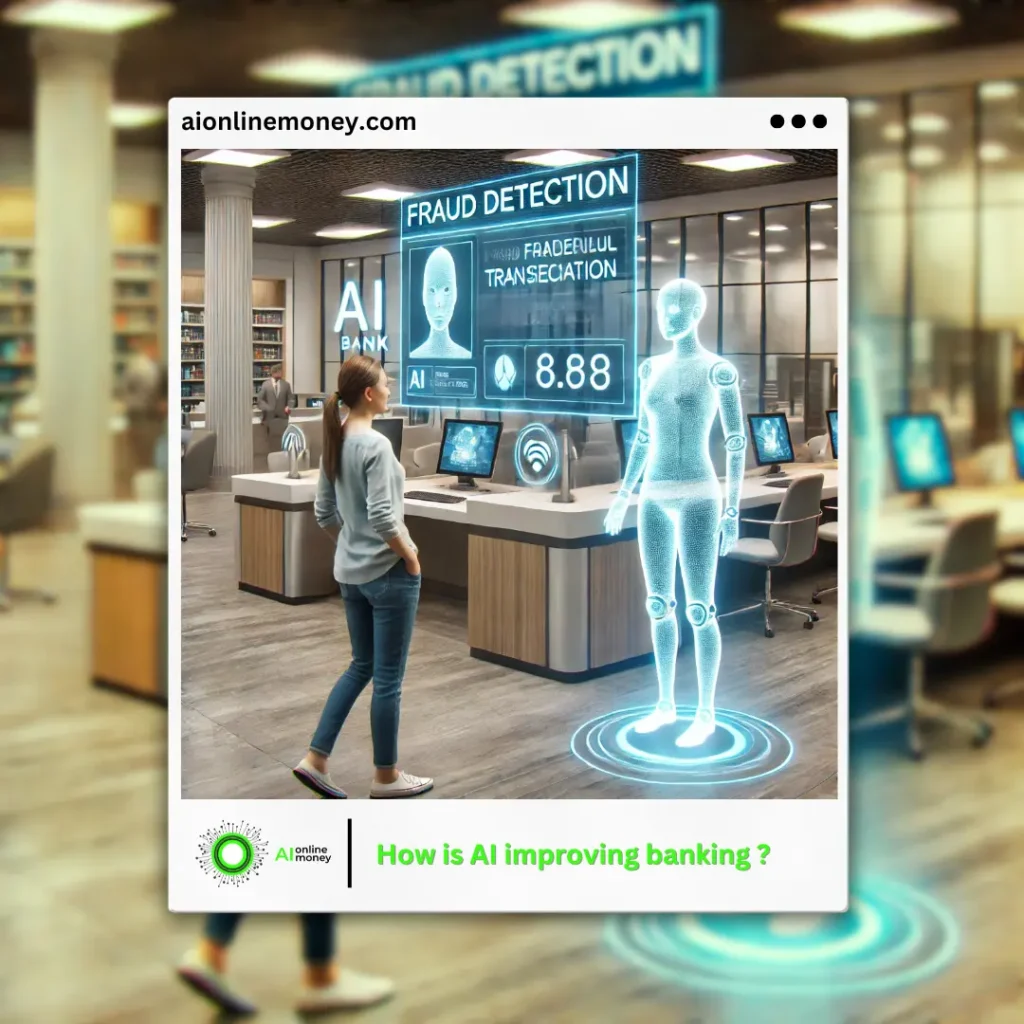Banking, the most important sector in the world, makes the change from time to time in the technology that we use today. Artificial intelligence has taken the world into the next zone that we can’t imagine from transforming industries from healthcare to transportation. Among this sector, the bank is significantly impacted for optimum use and provides efficient services to clients like Artificial Intelligence in Banking ,AI chatbot and fraud detection from unethical financial activities. Banks which have successfully adopted AI, definitely impacted their work with a better output.
Some successful ideas like AI chatbot, this AI chatbot not only simplified banking sector operations but has enhanced user experiences, also helped in fraud detection, doing automated tasks, risk rating and regulatory compliance any many more. Let’s jump into how Artificial Intelligence in banking is shaping the finance sector and what lies forward in this transformative journey.
Here is How Artificial Intelligence in banking has impacted in this sector
Boosted the Experience of the Customer
Artificial Intelligence changed the experience of customers in banking. Traditional marketing requires customers to visit branches, wait for long queries, and many more during banking hours. Due to this banks require more workers to manage this work. Now, the AI chatbot handles this work very easily, this AI chatbot and virtual assistants have banking services 24/7, and provide quick responses to customer queries. This AI chatbot can perform various tasks like like balance inquiries and transaction history and also offers customized product recommendations based on customer data.
Artificial intelligence properly assists banks and provides a custom-made experience for each customer. By analyzing the behavior of users on banking apps, transaction history, and more. Artificial intelligence in banking sector changed the technology like AI algorithms can suggest banking products, investment options, or financial advice. The level of intelligence not only improves customer satisfaction but also drives customer loyalty.
Artificial Intelligence in Banking Finding the Fraud and stopping
Fraud has always been a problem in the sector of finance, and all other sectors. Also, as the digital banking sector becomes more common, the risk of digital fraud has increased day by day. Artificial intelligence in the banking sector has become an important tool for identifying fraud activities. Traditional methods for detecting fraud have become slow, mainly it is based on the rule-based systems. Artificial intelligence in banking systems can process large amounts of data in proper time, detecting suspicious activity and identifying it before it increases. AI chatbot and many new technologies have the capability to detect fraud in the bank.
Automated Process:
The banking sector involves many manual tasks that are boring or repeated and time-consuming, like account opening to submission checks. Artificial intelligence in banking is transforming these operations through RPA (Robotic Process Automation), which computerized routine processes. RPA, powered by AI, easily handles tasks like KYC, form processing, generating reports, and many more. RPA is helping banks and other financial institutions to save time and be free to do other activities.
Risk Management and Credit Assessment:
Artificial intelligence in banking can quickly and accurately analyze large amounts of data and handle customers through AI chatbot, which has completely changed how banks manage risks and assess credit. Earlier, banks used only credit scores and basic financial information to decide if someone was creditworthy. Now, AI looks at many more details, like how people spend money, their transaction habits, and even their activity on social media.
Artificial intelligence in banking also helps banks handle data faster and more accurately. For example, banks use natural language processing (NLP) to understand customer feedback by turning complex data into useful information. This automation makes work quicker, lowers costs, and allows banks to offer customers lower fees or better interest rates.
Regular Observation & Reporting
The banking industry has many strict rules and regulations. Artificial intelligence helps banks follow these rules better by automating compliance checks and creating detailed reports. It can quickly scan large amounts of data to find any issues, making sure banks stay within the required guidelines.
Challenges for implementing Artificial Intelligence in Banking
Artificial intelligence in banking brings many benefits to the sector, but there are many challenges. Setting up AI chatbot and AI system needs a lot of money and machine learning engineers. Also protecting the data of customer and keeping it secure is very important since banks deal with sensitive information. Another concern is that automation might take over some jobs that people usually do, this are a challenge for Artificial intelligence in banking.
Conclusion
Artificial Intelligence is changing the banking industry by improving customer experience through AI virtual assistants and features like fraud detection making work more efficient also boosting security. As AI grows, it offers huge opportunities for better personalization, safety, and convenience. We should be aware of it and must read various articles related to AI. AI provides better functionality to banks. However, banks need to handle challenges like data privacy, ethical issues, and job changes to use AI’s full potential.



